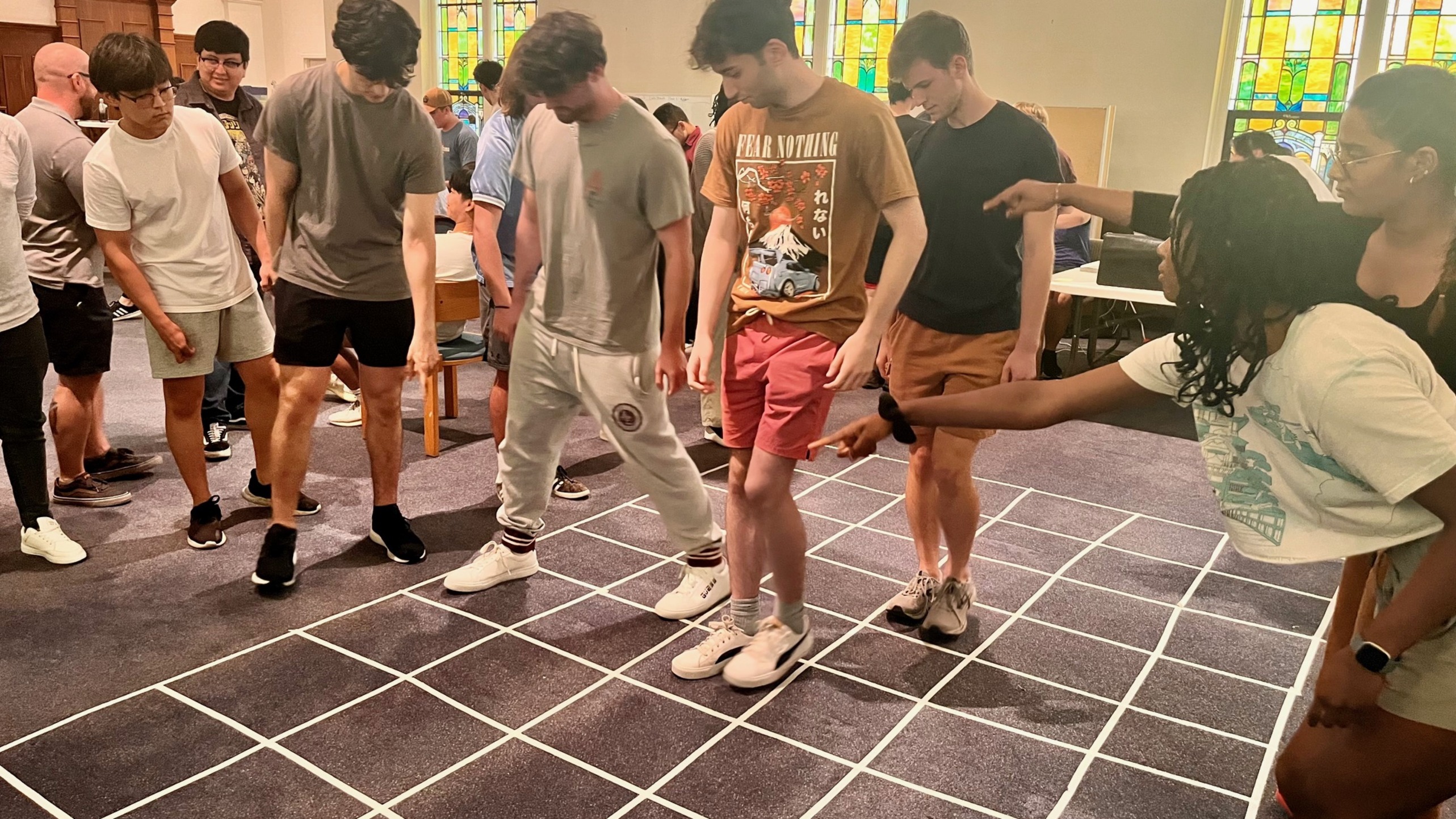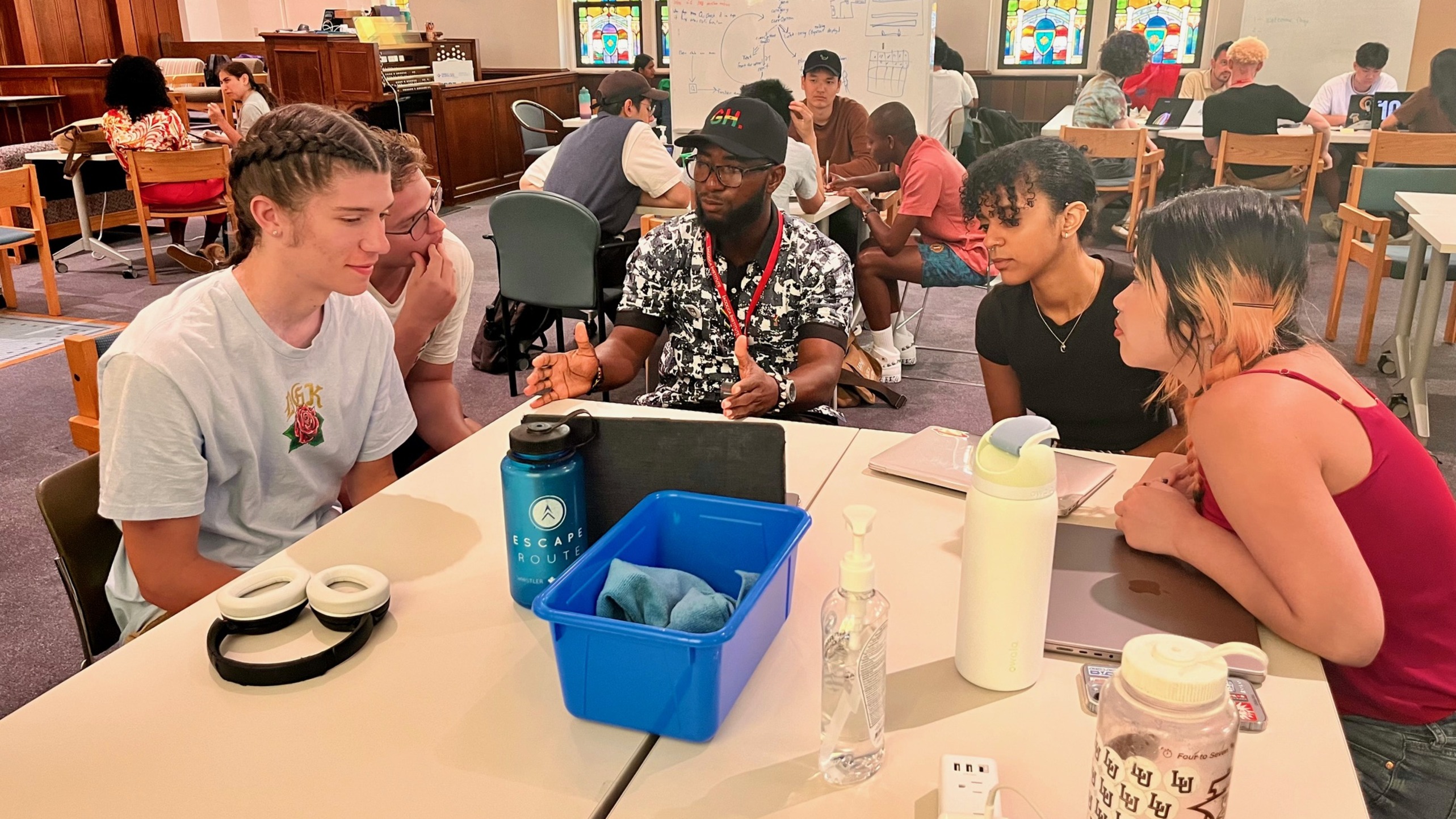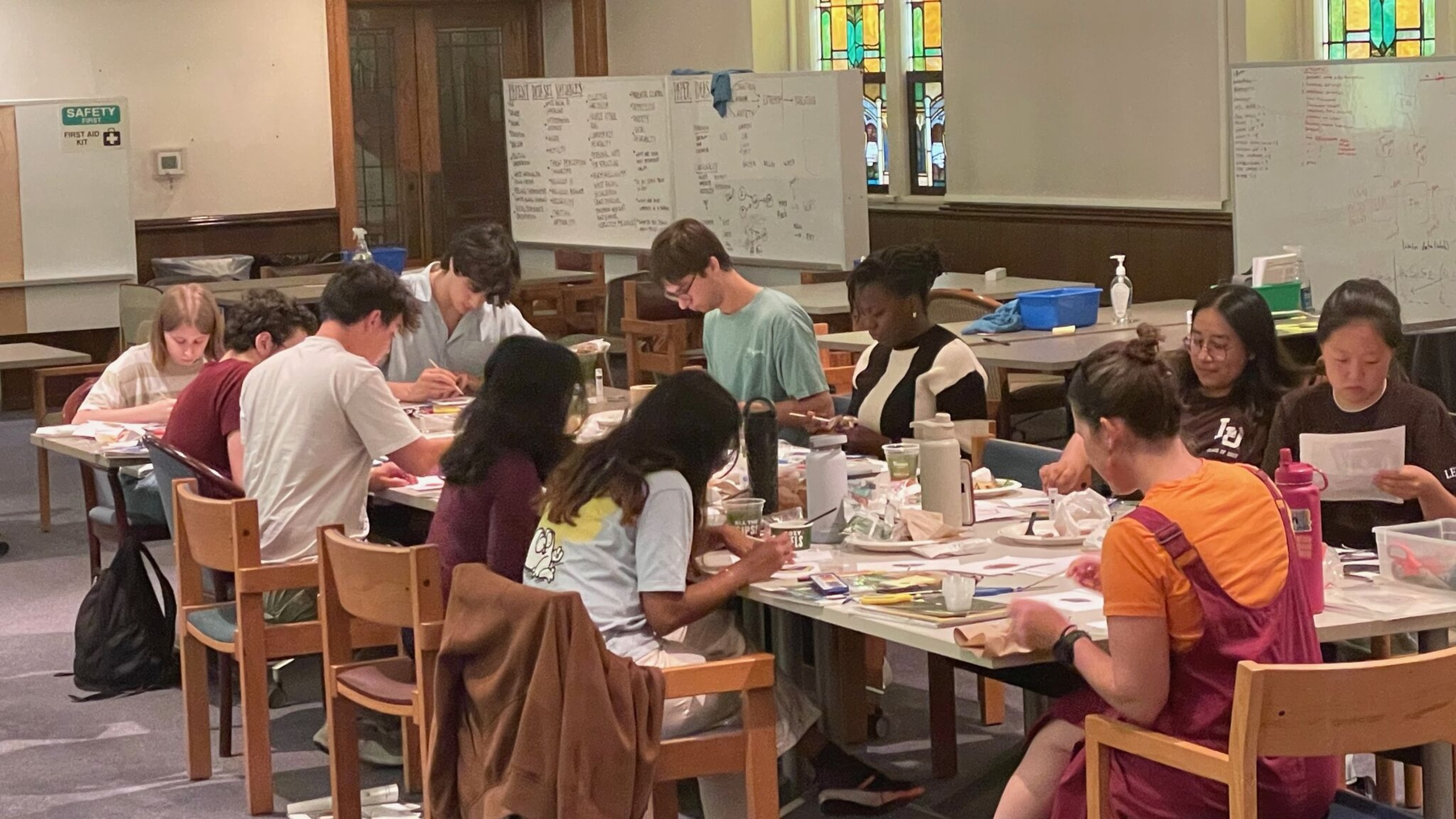NOTE ON 2025 MOUNTAINTOP SUMMER PROGRAM:
At this time, the 2025 Mountaintop Summer program projects will not be open to Lehigh applicants outside of the Impact Fellowship program. You must be a 2025 Impact Fellow to apply and participate.
What are Mountaintop Projects?
Mountaintop projects are interdisciplinary deep dives where faculty, students, and external partners come together and take new intellectual, creative, and/or artistic pathways that lead to transformative new innovations, new expressions, and new questions. We expect students to take radical ownership in their projects, and envision faculty mentors as partners and co-creators striving to propel their projects forward on the journey towards tangible, sustainable impact: impact which builds the skillsets, mindsets, and portfolios of pioneers and change-makers in a rapidly changing world.
2024 Mountaintop Events
2024 Mountaintop Summer projects:
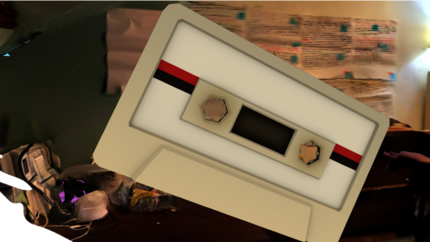
1. An Archive of Queer Care: Virtual Reality, Spatial Design, Immersive Archive Creation
Project Mentor: Prof. Joseph Amodei
Merging virtual reality (VR), spatial design, and archival research to construct a living, immersive archive for the exploration and preservation of queer care, community, and activism. We will develop an innovative theatrical media/video design employing surround projections and animations rooted in archival materials and personal narratives, and create a digital archive that honors / engages with the history and narratives of queer communities.

2. Blockchain System and Application Research
Project Mentor: Prof. Hank Korth
Technology is a continued quest to improve the human condition. Blockchain automates trust between untrusting parties, increasing access to information, finance, etc., unblocked by central authority. There will be a variety of projects within this one, some of which will be highly technical and others more application/user focused.

3. Building a DNA Computing and Storage Platform
Project Mentor: Prof. Mayuresh Kothare
Creating a lab-on-a-chip system that uses open-source software and hardware to manipulate droplets of water containing DNA to process binary information like an electronic computer, but with much higher data density. By sequencing the movement, heating, and cooling of the droplets on a platform called "Purple Drop," we hope to precisely control the hybridization of the DNA strands and process information in the form of bits.
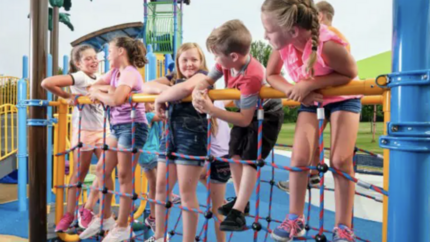
4. Childhood: Environment, Emotions, and Social Engagement
Project Mentor: Prof. Danming An
Integrating multiple levels and facets of data to comprehensively understand early middle-childhood (6-9 years old) children's adjustment in the social world. We seek to understand how the environmental socialization processes contribute to the development of social cognitive and socio-emotional skills during this period, and how those skills are associated with children's psychological, social, and school adjustment.

5. Childhood of the Future
Project Mentors: Profs. Nandini Deo and Khurram Hussain
Exploring questions of the ever-evolving nature of childhood - what kinds of exposure, challenges, training, stimulation, and education are necessary to create the "future makers." We will integrate insights from speculative science fiction, new-age thinkers, venture capitalists, and others with what is known about child development, neuropsychology, etc. to imagine the childhood(s) of the future.
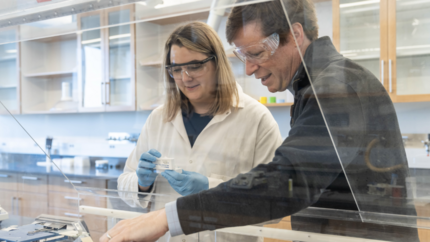
6. Exploring Active Granular Media
Project Mentor: Prof. James Gilchrist
Discovering new designs / applications for active granular media. Granular media exist in nature (sand, soil) and industry as raw materials and consumer products, and remain a challenge in both physics and engineering. The Gilchrist Lab has developed magnetically responsive microrollers that behave as granular materials, and we are interested in studying the collective behavior of these materials, not just individual particles.
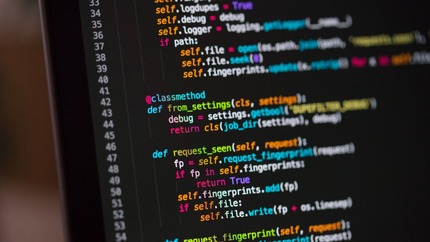
7. Forecasting Material Event Sequences using FinGPT
Project Mentor: Prof. Patrick Zoro
Developing a cutting-edge specific event-driven algorithmic trading strategy informed by real-time analysis of SEC 8-K reports and supplemental disclosures that can serve as a model for other event-driven algorithmic trading strategies. We will significantly augment the work of investment analysts.

8. An Integrative Approach to Studying Adolescents Online and Offline Social Lives
Project Mentor: Prof. Sarah Borowski
Updating traditional approaches to studying adolescents' friendship interactions by integrating their "online" experiences with technology and social media with their "offline" experiences with friends IRL.
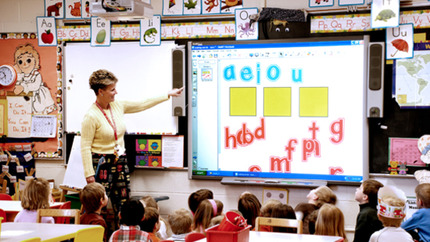
9. Intelligent Tutoring Systems for K-12 AI Literacy
Project Mentor: Prof. Juan Zheng
Designing and implementing an Intelligent Tutoring System (ITS) that enhances K-12 students' AI literacy by providing personalized and adaptive learning experiences. How should an intelligent tutoring system be designed to effectively improve K-12 students' understanding of AI concepts and principles?
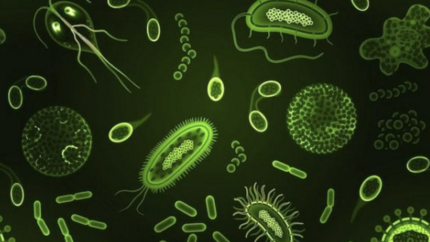
10. Investigating a Bacterium's Journey across Host Species
Project Mentor: Prof. Dylan Shropshire
Imagine tiny, invisible houseguests living inside the cells of other organisms, navigating a world where the line between friends and enemies is razor-thin. This is the realm of endosymbionts. Through time, endosymbionts may disappear without a trace, take control of their hosts' evolutionary pathways, or jump ship to team up with new hosts. Our dream is to understand what makes endosymbionts thrive.
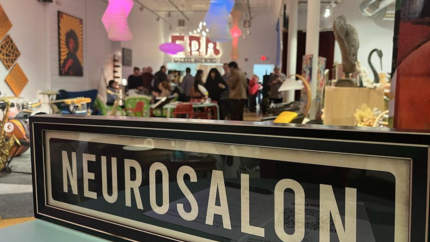
11. NeuroSalon
Project Mentor: Prof. Julie Miwa
Exploring the tremendous capacity of the brain for growth, plasticity, and creativity. Through various art forms, we seek to lower the barriers to scientific understanding and convey our belief that creativity is within everyone's reach. We create dance, music, and art to illustrate the beauty and power of the brain, and hold workshops and "artshops" to engage the audience in play and creation, all to foster brain health and well-being.

12. Organoid Sorting by Multiplex Image Machine Learning
Project Mentor: Prof. Yaling Liu
Creating a machine-learning guided on-chip platform for rapid formation, intelligent categorization, and on-demand sorting of Patient-Derived Tumor Organoid (PDTO) models for downstream multiscale phenotypic quantification.
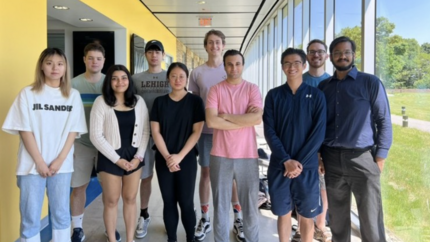
13. PA 100 Index
Project Mentor: Prof. Patrick Zoro
Designing a user interface to track all of Pennsylvania's publicly traded companies, showcasing economic trends alongside indexes such as those that aid in understanding private market investment, thus granting access to individuals who traditionally lack such resources. We aim to condense the index creation process from months to weeks, paving an innovative path and ensuring the PA 100 index's success in the wider world.
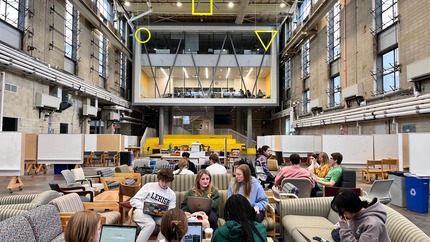
14. Sparking Student Motivation for High-Impact Opportunities
Project Mentors: Dr. Eric Obeysekare and Michelle Spada
High-impact opportunities (research, internships, etc.) have proven positive outcomes for students and are effective at leveling the playing field for underrepresented students. Why is every student not participating in high-impact opportunities? What are the barriers to participation? We will explore how technology can overcome those barriers and increase student access to high-impact opportunities at the university level.
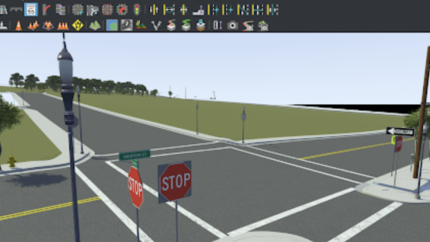
15. Self-Driving Cars in Urban Environments with Traffic
Project Mentor: Prof. Cristian Vasile
Creating a hardware testbed to evaluate the safety of controllers for self-driving cars that account for traffic. Will involve designing the urban environment, developing the software to create, deploy, and collect data from scenarios, and integrating and developing the Robotic Operating System 2.0 compatible software to detect signage, markings, and lights in the environment. Potential for impact on autonomous driving research.
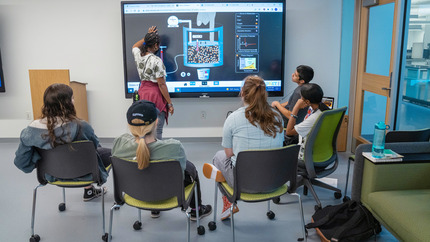
16. STEM Visualizations
Project Mentors: Profs. Srinivas Rangarajan and Joseph Menicucci
Improving the course content of engineering classes through tools that enhance the learning outcomes from students and enable personalized learning. We envision creating computational modules as pedagogical tools to teach complex engineering concepts through the concept of Inquiry-Based Learning (IBL).
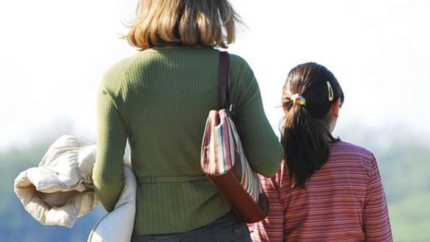
17. Understanding the Transmission of White Nationalist Beliefs from Parents to Children
Project Mentor: Prof. Debbie Laible
Examining (leading to publishable research) how White nationalist beliefs are passed from one generation to the next. We want to understand how parenting practices, coupled with White nationalist beliefs, lead to adolescents adopting similar extremist views, with the ultimate goal of understanding the processes of intergenerational transmission of racist / nationalist attitudes to develop programs that could eliminate or disrupt this transition.
For Students
The Mountaintop Summer Program (MTSP) runs for 10 weeks (2024 program dates are June 3rd-August 9th). At this time, the program is in-person for all students – no virtual participation will be part of the program this summer. Some Associates may be able to work remotely with program leader and faculty project mentor approval. All project teams will be given a dedicated or shared “home” working space, although we understand that some teams will have to conduct some or most of their work at other locations on campus or in the surrounding community.
Mountaintop Fellows are expected to continue working on their projects in the Fall 2024 semester through the CINQ 389 course. Enrollment information will be provided to these students at a later time. CINQ 389 is a variable-credit course (1-6), but we have a strong preference for 2 or 3 credits of enrollment.
Students selected as Mountaintop Fellows are paid a stipend of $5,000 for undergraduates, or $6,000 for graduate students, for the summer. These stipends are paid in five biweekly installments beginning mid-June and ending mid-August. Projects typically have two, or at most three, Fellows. Fellows make a full-time commitment to their projects for the 10 weeks of the program, and are not allowed to take summer courses or have jobs, internships, or vacations that would substantially take them away from their project work. Fellows are also expected to continue working on their projects through the Fall semester (and possibly beyond) by enrolling in the CINQ 389 course. Fellows are expected to be in attendance at all relevant presentations, workshops, meetings with Innovators in Residence, and other program opportunities, throughout the summer.
Mountaintop Associates are not paid a stipend, and make a part-time commitment (typically 10 hours per week) to their project. Associates are invited and strongly encouraged to attend all relevant presentations, workshops, meetings with Innovators in Residence, and other program opportunities, throughout the summer. Associates are strongly encouraged to continue working on their project through the CINQ 389 course in the Fall semester and beyond.
Lead faculty project mentors can utilize up to $500 in project expenses. These funds are not tracked by the Office of Creative Inquiry, and faculty may use them as they choose as long as they are relevant to the project. However, the intention of these funds is to help disseminate the work of the project (through conference registration fees and the like) and/or to supplement (or in some cases support) project expense budgets. If students incur project expenses during the summer, there is a system for providing reimbursement from project accounts, which will be handled by program leadership. **NOTE: These funds are subject to adjustment or change if unexpected budgetary constraints arise**
Additional project expense budgets beyond the allocated $500 (for needed equipment, supplies, reagents, resources, etc.) will be considered as requested.
Mountaintop applications usually open in early-mid March and typically there is a 2-3 week open application period. The application link will be posted on the top of the Mountaintop home page once applications have “gone live.”
The application form will include a list of available projects, and applicants list their top three project choices. After the application period closes, faculty mentors will be given applications for those students who indicated an interest in their project and will typically contact those students for a brief interview. The Office of Creative Inquiry does not assign students to specific projects; those decisions are entirely at the discretion of the faculty lead mentor(s).
Demonstrating a high work ethic, dedication to and support for the goals of the project, and strong collaboration skills are usually more important selection criteria than specific technical knowledge or skill sets, although those can be noted on applications as well. Fellows usually require a broader set of skills and mindsets, whereas Associates may be assigned to specific parts of the project, so technical skills may become important in those cases.
Faculty mentors will inform the Office of Creative Inquiry of their selections within two weeks after applications close, and students will be informed in early-mid April.
Faculty mentors are welcomed and encouraged to recruit students to their own projects. Those students will need to fill out an application form to the program, but can be automatically accepted based on faculty recommendation / request.
While the primary focus of the summer will be making progress on projects and taking a deep dive of exploration and achieving deliverables, MTSE offers ongoing developmental, informational, and practical opportunities to students. In addition, we will invite an array of subject matter experts, working professionals, and potential partners as “Innovators in Residence,” many of whom will offer broad-topic master classes, all of whom will meet with selected individual project teams who might benefit from their expertise. Fellows are required to attend sessions with Innovators in Residence if invited; Associates are expected to attend unless they have a compelling conflict.
At regular intervals, student teams will present their work to one another and/or to public audiences. Toward the end of the summer, we will likely be hosting a Summer Expo, where projects will be presented in poster format (unless other formats are negotiated) alongside projects from the STEM-SI summer program and various REUs.
The Mountaintop Summer Experience does not arrange student housing. Students are on their own to arrange their housing situation, whether on-campus or off-campus, for the summer.
Fellows who receive a stipend may request arrangement for on-campus housing fees to be deducted in equal amounts from each stipend "paycheck" throughout the summer, rather than having to pay housing costs up front as is usually the case. Fellows interested in this arrangement should contact program leadership as soon as they are accepted.
For Faculty
Proposals for 2024 Mountaintop Summer Program projects must be submitted by the faculty member who will serve as lead mentor for the project. Staff members may submit proposals with approval from their department or stem leadership. Submit proposals in a PDF document, attached to an email sent to wrw210@lehigh.edu, with the subject line "Summer 2024 Proposal: <Project Title>."
Proposals will be reviewed on a rolling basis beginning February 15th, 2024. Final deadline for all proposals is February 29th, 2024 - therefore the 2024 deadline is now closed.
Proposals should not exceed two (2) pages in length and should include the following:
DEMOGRAPHICS:
• Project title (will be used in program communications and marketing materials)
• Name of lead faculty mentor (also the primary faculty contact)
• Names of partnering faculty/other mentors if applicable
• Names of students already committed to the project, if any
• Types of students who would be ideal for this project…majors, skill sets, competencies, interests, etc.
• Ideal location for conducting your work on campus, or another location?
• Special equipment or setup you anticipate needing for your project
DREAM and IMPACT:
• What is the dream?
• How will you pursue this dream?
• What is the topic/question/possibility/mode of inquiry you will employ?
• What is the project’s potential for impact? What might your impact look like? What disciplines, fields, or spheres will your work influence?
• How is this project collaborative, and what communities of practice would be involved in seeing it through, evaluating its progress, assessing its importance?
PROJECT SCOPE:
• What are you inspired by, what are you building on, and how are you standing on the shoulders of giants?
• What is the new intellectual/creative pathway you are taking?
• Why is this a game-changer?
• Who cares and why? What communities of practice are you contributing to, and calibrating against?
Faculty project mentors at Mountaintop are not expected to “teach” in the normal sense. Students drive the work and can learn what they need in a just-in-time manner. Faculty mentors, along with program leadership, will help connect students with the resources that they need to get up to speed in order to make appropriate progress on their project. In Creative Inquiry, students take “radical ownership” of their projects and are expected to make substantive intellectual contributions that could lead to co-authorship on publishable research articles, presentations at professional conferences, patent applications, etc.
The most successful MTSP students are those who demonstrate self-efficacy, an execution-focused mindset, strong teamwork skills, openness to learning new skill sets and mindsets, and a comfort level with open-ended questions and problems. The primary roles of the faculty mentor are to provide advice, resources, and guidance syncing up with the team on a regular basis (at least weekly) to monitor progress.
Faculty are not compensated monetarily for mentoring a Mountaintop project. Projects should be part of a faculty member's research agenda or impact agenda.
Each project can be provided budgetary support, typically up to $500, for expenses to advance the project. Expenditure of these funds should be done through program leadership. If additional project budget funding is needed, a request should be made to program leadership as soon as possible. Additional funds are not guaranteed.
Accepted projects are given two Mountaintop Fellowships (compensated at $5K for undergraduates and $6K for graduate students). Faculty can petition for additional Fellows, although they are not guaranteed and will be granted based on budgetary availability.
Faculty mentors select their own teams based on applications received. Students who apply are given the opportunity to indicate their top three (3) project choices, and faculty mentors will receive the applicants who indicated an interest in their projects specifically.
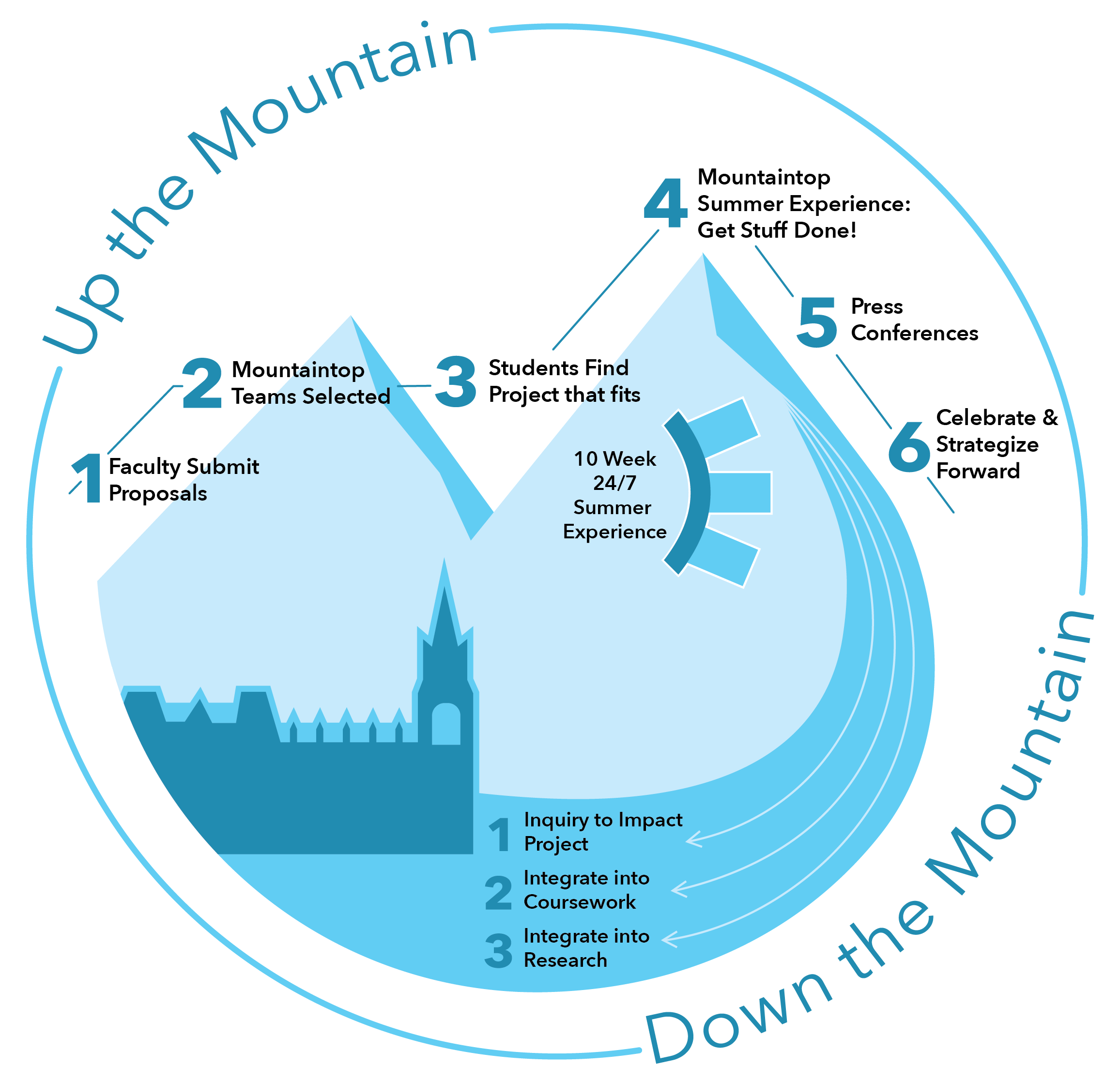
2023 Mountaintop Summer Projects
*Projects are listed in alphabetical order.
GSIF/LVSIF/CSIF/SVSIF projects can be found on their respective pages; these projects are part of one of the Impact Fellowship programs in addition to participating the mountaintop summer program. For more information see: go.lehigh.edu/gsif | go.lehigh.edu/lvsif | go.lehigh.edu/csif |go.lehigh.edu/svsif.
D4I projects can be found on the D4I page, although they also partcipate in the Mountaintop Summer Project. For more information see: go.lehigh.edu/d4i
1. An Integrative Approach to Studying Adolescents Online and Offline Social Lives
Faculty Mentor: Rosa Zheng (Electrical & Computer Engineering)
2. Autonomous Driving for Underwater Drones
Faculty Mentor: Rosa Zheng (Electrical and Computer Engineering)
3. Beyond Bars
Faculty Mentor: Bill Whitney (Creative Inquiry), and Lee Kern (College of Education)
4. Blockchain System and Application Research: Performance, Central-bank Digital Currencies, Algorithms for Zero-Knowledge Privacy
Faculty Mentor: Hank Korth (Computer Science and Engineering)
5. Breath of the City: from One City to the Next
Faculty Mentors: Yu Yang, Brian Davison, Lichao Sun (Computer Science and Engineering), Linchen He (College of Health), and Daniel Robinson (Industrial and Systems Engineering)
6. Building a DNA Computing and Storage Platform: When Biomolecules meet Computer Arithmetic
Faculty Mentors: Mayuresh Kothare (Chemical and Biomolecular Engineering), and Mark Arnold
7. Coaching towards Global Well-Being
Faculty Mentor: Lina Rodriguez (Global Citizenship)
8. Community Mapping for Environmental Justice in Partnership with the Southside Community of Bethlehem
Faculty Mentor: Kate Jackson (Community and Population Health)
9. Echo Hawks
Faculty Mentor: Nathan Urban (Provost and Vice President of Academic Affairs)
10. Expanding and Activating LGBTQ + Archives
Faculty Mentors: Mary Foltz (English), and Lyam Gabel (Theatre)
11. Exploring Active Granular Media
Faculty Mentor: James Gilchrist (Chemical and Biomolecular Engineering)
12. Kazakhstan: Breathe Almaty
Faculty Mentor: Dinissa Duvanova (International Relations)
13. Kazakhstan: Food Security and Nutrition
Faculty Mentor: Joseph Menicucci (Chemical and Biomolecular Engineering)
14. Kazakhstan: Save Tuba
Faculty Mentor: Sean Vassilaros (Computer Science and Business)
15. Lehigh RiVR: Immersive Virtual Reality Gaming
Faculty Mentors: Al Bodzin (Al Bodzin), David Anastasio (Earth and Environmental Sciences), Tom Hammond (Instructional Technology, College of Education), and Zilong Pan (Teaching, Learning & Technology, College of Education)
16. Loewy Institute 2023 Mountaintop Summer Experience: Sustainability in and Applications of Metals Recycling
Faculty Mentors: Wojtek Misiolek, Nicholas Rockwell and Charles Yurgel (Materials Science and Engineering)
17. Machine Learning Interpretability of a Supervised Learning-based Bitcoin Trading Strategy
Faculty Mentor: Patrick Zoro (Financial Engineering)
18. Machine Learning-Enhanced Atomic Force Microscopy
Faculty Mentor: Xiaoji Xu (Chemistry)
19. Mountaintop as a Destination
Faculty Mentors: Christine Cook (VP of Strategic Planning and Initiatives), Joe Sterrett (Dean of Athletics), Nicholas Sawicki, Christine Ussler (Art, Architecture & Design), and Mark Ironside (AVP of University Business Services)
20. Multi-Factor Investing
Faculty Mentor: Patrick Zoro (Financial Engineering)
21. NeuroSalon
Faculty Mentor: Julie Miwa (Biological Sciences)
22. Organoid Sorting by Multiplex Image Machine Learning
Faculty Mentor: Yaling Liu (Bioengineering/Mechanical Engineering and Mechanics)
23. Philippines: Flying Swarms
Faculty Mentor: David Saldaña (Computer Science & Engineering)
24. Philippines: Modular Small-Scale Desalination Plants
Faculty Mentor: Carlos Romero (Energy Research Center)
25. Philippines: PlasTech Ventures – Empowering Women by Recycling Plastic to Produce High Value Products
Faculty Mentor: Eric Obeysekare (Computer Science and Engineering)
26. Practical Training and Research in Computer-Aided Drug Discovery
Faculty Mentor: Wonpil Im (Computer Science / Bioengineering)
27. Promoting experiential learning and creative inquiry in science and engineering via interactive online visualization
Faculty Mentors: Srinivas Rangarajan & Joseph Menicucci (Chemical and Biomolecular Engineering)
28. Revitalization of Endangered Languages with Machine Learning
Faculty Mentor: Maryam Rahnemoonfar (Computer Science & Engineering)
29. Self-Driving Cars in Urban Environments with Traffic
Faculty Mentor: Cristian Vasile (Mechanical Engineering and Mechanics)
30. Sierra Leone: AI Strengthening Healthcare Access (AISHA)
Faculty Mentor: Eric Obeysekare (Computer Science and Engineering)
31. Sierra Leone: Innovations in Maternal Health and Cervical Cancer Prevention
Faculty Mentor: Khanjan Mehta (Creative Inquiry)
32. Sierra Leone: Mothers of Sierra Leone – Documenting Stories of Healthcare Innovation and Community Resilience
Faculty Mentors: Michael Kramp (English/Film/WGSS) and Fathima Wakeel (Community and Population Health)
33. Sierra Leone: Newtrition
Faculty Mentor: Sean Vassilaros (Computer Science and Business)
34. Sierra Leone: Sickle Cell Anemia Diagnostic Device
Faculty Mentor: Xuanhong Cheng (Bioengineering)
35. Storytelling Food Insecurity in the Bay Area
Faculty Mentor: Melpomene Katakalos (Theatre Studies)
36. Strengthening the Lehigh Valley as a Hub for Entrepreneurs in Creative Industries
Faculty Mentor: Antigoni Papadimitriou (Management)
37. Synergy of Care for Infants and Toddlers: Advancing integration of Health, Developmental, and Educational Services for Children who are in Native American and Latine Communities
Faculty Mentors: Patricia Manz (College of Education), and Sean Daley (IIS / College of Health)
38. ThermoSolar: Thinking Holistically About Energy
Faculty Mentor: Carlos Romero (Energy Research Center)
39. Understanding White Nationalist Beliefs in Parents and Adolescents
Faculty Mentor: Debbie Laible (Psychology)
40. Zero Hunger College
Faculty Mentor: Khanjan Mehta (Creative Inquiry)
2022 Mountaintop Summer Projects
*Projects are listed in alphabetical order.
GSIF/LVSIF/CSIF projects can be found on their respective pages; these projects are part of one of the Impact Fellowship programs in addition to participating the mountaintop summer program. For more information see: go.lehigh.edu/gsif | go.lehigh.edu/lvsif | go.lehigh.edu/csif.
D4I projects can be found on the D4I page, although they also partcipate in the Mountaintop Summer Project. For more information see: go.lehigh.edu/d4i
1. Air Quality Initiatives in Almaty
Faculty Mentors: Prof. Dinissa Duvanova (International Relations)
2. Autonomous Driving for Underwater Drones
Faculty Mentor: Rosa Zheng (Electrical & Computer Engineering)
3. Beyond Bars
Faculty Mentor: Dr. Bill Whitney (Office of Creative Inquiry)
4. Creative Solutions to Improving Quality of Life through the Clean and Safe Neighborhoods Initiative
Faculty Mentor: Prof. Jennifer Swann (Biological Sciences)
5. Design of Lehigh-Based interface with Web3.0
Faculty Mentor: Prof. Patrick Zoro (Finance)
6. Diagnosing Autism in Sierra Leone
Faculty Mentor: Prof. Kristi Morin (Special Education)
7. Echo Hawks
Faculty Mentor: Dr. Nathan Urban (Academic Affairs); Prof. Khanjan Mehta (Creative Inquiry)
8. Environmental Pollution and Asthma Effects
Faculty Mentor: Prof. Hyunok Choi (College of Health)
9. Factor Models and Portfolio Management
Faculty Mentor: Prof. Patrick Zoro (Finance)
10. Financial Equation and Machine Learning
Faculty Mentors: Prof. Patrick Zoro (Finance)
11. Flying Swarms: Designing, Constructing, and Programming Autonomous Robotic Blimps
Faculty Mentor: Prof. David Saldaña (Computer Science and Engineering)
12. Food Carbon and Water Footprint
Faculty Mentors: Prof. Don Morris (Earth & Environmental Sciences)
13. Food Products to Fight Malnutrition and Stunting in Sierra Leone
Faculty Mentors: Prof. Lori Herz (Bioengineering)
14. Interpretability of a supervised learning-based trading strategy
Faculty Mentor: Prof. Patrick Zoro (Finance)
15. Lehigh Night Hawks
Faculty Mentors: Prof. Jennifer Swann (Biological Sciences); Chief Jason Schiffer (LUPD)
16. Lehigh RiVR Immersive Learning
Faculty Mentors: Prof. Al Bodzin, (College of Education); Prof. David Anastasio (Earth and Environmental Sciences); Prof. Tom Hammond, (College of Education)
17. Machine Learning for Advanced Micro-Fabrication and Cell Manipulation
Faculty Mentor: Prof. Yaling Liu (Bioengineering / Mechanical Engineering and Mechanics)
18. MindFull
Faculty Mentors: Prof. Khanjan Mehta (Creative Inquiry)
19. NeuroSalon
Faculty Mentor: Prof. Julie Miwa (Biological Sciences)
20. PA 100 Index of Companies
Faculty Mentors: Prof. Patrick Zoro (Finance)
21. Parent-Adolescent Discussions about Race and Racism
Faculty Mentor: Prof. Debbie Laible (Psychology)
22. Pennsylvania Asthma Syndromic Surveillance
Faculty Mentors: Prof. Hyunok Choi (College of Health)
23. PlasTech Campus – Decontaminating Lehigh’s Recycling stream
Faculty Mentors: Prof. Ganesh Balasubramanian (Mechanical Engineering); Brian Slocum (Wilbur Powerhouse Design Labs)
24. PlasTech Ventures – Empowering Women by Recycling Plastic to Produce High Value Products
Faculty Mentors: Prof. Ganesh Balasubramanian (Mechanical Engineering); Brian Slocum (Wilbur Powerhouse Design Labs)
25. Practical Training and Research in Computer-Aided Drug Discovery
Faculty Mentors: Prof. Wonpil Im (Bioengineering)
26. Regional LGBTQ Archives
Faculty Mentors: Prof. Mary Foltz (English)
27. Reinforcement Learning and Interpretability
Faculty Mentors: Prof. Patrick Zoro (Finance)
28. Replacing Independent Directors
Faculty Mentors: Prof. Jesus Salas (Finance)
29. Research Integrity in Kazakhstan
Faculty Mentors: Dr. Bill Gaudelli, Dean (College of Education); Prof. Dinissa Duvanova (International Relations); Prof. Khanjan Mehta (Creative Inquiry)
30. Save Tuba
Faculty Mentors: Prof. Khanjan Mehta (Creative Inquiry)
31. Self-Driving Cars in Urban Environments with Traffic
Faculty Mentors: Prof. Cristian Vasile (Mechanical Engineering and Mechanics)
32. SicklED – Sickle Cell Anemia Diagnostic Device
Faculty Mentors: Prof. Xuanhong Cheng (Bioengineering)
33. Southside Permaculture Park
Faculty Mentors: Prof. David Casagrande (Sociology & Anthropology / Environmental Initiative); Prof. Al Wurth (Political Science)
34. STEM Visualizations
Faculty Mentors: Prof. Srinivas Rangarajan (Chemical and Biomolecular Engineering)
35. Ukweli Test Strips
Faculty Mentors: Prof. Khanjan Mehta (Creative Inquiry)
36. Zero Hunger College
Faculty Mentors: Prof. Ganesh Balasubramanian (Mechanical Engineering); Dr. Elmer Soriano (Civika Asian Development Academy)
*Projects are listed in alphabetical order.
1. American Indian Community Health and Education Projects through the Institute for Indigenous Studies
Faculty Mentors: Sean Daley and Christine Daley (College of Health)
2. Autonomous Driving for Underwater Drones
Faculty Mentor: Rosa Zheng (Electrical & Computer Engineering)
3. Environmental Pollution and Asthma in Pennsylvania
Faculty Mentor: Hyunok Choi (College of Health)
4. How White Mothers Discuss Peer Victimization with Young Children
Faculty Mentor: Debbie Laible (Psychology)
5. Mathematical Modeling and Syndromic Surveillance of COVID-19 in Pennsylvania
Faculty Mentor: Thomas McAndrew (College of Health)
6. NeuroSalon
Faculty Mentor: Julie Miwa, Biological Sciences
7. Renewable Energy in Ghana
Faculty Mentor: Steven McIntosh (Chemical Engineering)
8. Rewriting the Script 3.0: Designing Virtual Racial Embodiment Interactions to Transform U.S. Race Relations
Faculty Mentor: Valerie Jones Taylor (Psychology)
9. Self-Driving Cars in Urban Environments with Traffic
Faculty Mentor: Cristian Ioan Vasile (Mechanical Engineering)
10. Southside Permaculture Park
Faculty Mentors: David Casagrande (Earth & Environmental Sciences), Al Wurth (Political Science)
11. STEM Visualizations
Faculty Mentor: Srinivas Rangarajan (Chemical & Biomolecular Engineering)
12. Superbugs, COVID-19, and the Media
Faculty Mentors: Sharon Friedman (Journalism & Communications), Amanda Greene (Humanities Lab)





